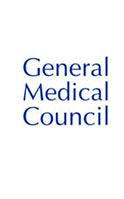Male Infertility
What is Male Infertility?
Male infertility is a common reproductive problem affecting men, where the male is unable to contribute to a pregnancy. When couples are not able to conceive even after having unprotected sex for over a year, it is important for both partners to be examined by their physician. Up to 1 out of 3 infertility cases are linked partly to issues with the male partner.
Factors Affected Male Infertility
Male fertility may be impaired by a number of factors. These include:
Sperm production problems: The quality and quantity of sperm are the key factors for male fertility. Any defect such as immature sperm or low sperm count (oligospermia) can lead to infertility.
- Varicoceles: swelling of the veins that supply the testicle.
- Backward ejaculation of the sperm
- Blockage of the sperm carrying ducts
- Development of sperm antibodies (auto-immune disorder)
- Hormonal/stress problems
- Infections/tumours of the male reproductive system
- Genetics (chromosomal disorders)
- Sexual problems
- Use of certain medications such as steroids
- Excessive radiation exposure
- Work-related causes such as excessive use of the laptop, which elevates the temperature of the testes, leading to low sperm production
- Smoking and alcohol abuse
Diagnosis of Male Infertility
Your doctor will diagnose male infertility based on the following:
- Medical history
- Complete physical examination
- Semen analysis: Laboratory test carried out to assess sperm count and quality
- Transrectal ultrasound of the prostate: Investigation carried out to evaluate the prostate gland and detect any obstruction of the ducts that transport the sperm
- Scrotal ultrasound: Imaging test to diagnose abnormalities of the scrotum or testicles
- Testicular biopsy: A small piece of tissue is removed from the testicle using a sterile needle and sent for evaluation under a microscope to help determine the cause of infertility.
- Anti-sperm antibody tests to trace the antibodies that attack sperm
Treatment for Male Infertility
- Surgery is indicated in cases of varicocele and obstruction of the sperm duct to improve the sperm motion.
- Antibiotics are prescribed to treat infections of the reproductive system.
- Counselling about sex and relationships can help boost fertility levels.
- Male hormone replacement therapy may be used to treat hormonal deficiency.
- Assisted reproductive technology (ART) uses artificial methods of in vitro fertilization (IVF) and intracytoplasmic sperm injection (ICSI) to assist in the natural process of fertilization.
- Lifestyle modification such as not smoking, limiting alcohol intake and using stress reduction techniques.







